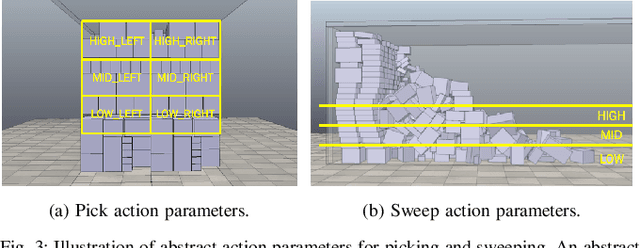Planning, Learning and Reasoning Framework for Robot Truck Unloading
Paper and Code
Oct 21, 2019



We consider the task of autonomously unloading boxes from trucks using an industrial manipulator robot. There are multiple challenges that arise: (1) real-time motion planning for a complex robotic system carrying two articulated mechanisms, an arm and a scooper, (2) decision-making in terms of what action to execute next given imperfect information about boxes such as their masses, (3) accounting for the sequential nature of the problem where current actions affect future state of the boxes, and (4) real-time execution that interleaves high-level decision-making with lower level motion planning. In this work, we propose a planning, learning, and reasoning framework to tackle these challenges, and describe its components including motion planning, belief space planning for offline learning, online decision-making based on offline learning, and an execution module to combine decision-making with motion planning. We analyze the performance of the framework on real-world scenarios. In particular, motion planning and execution modules are evaluated in simulation and on a real robot, while offline learning and online decision-making are evaluated in simulated real-world scenarios.
 Add to Chrome
Add to Chrome Add to Firefox
Add to Firefox Add to Edge
Add to Edge